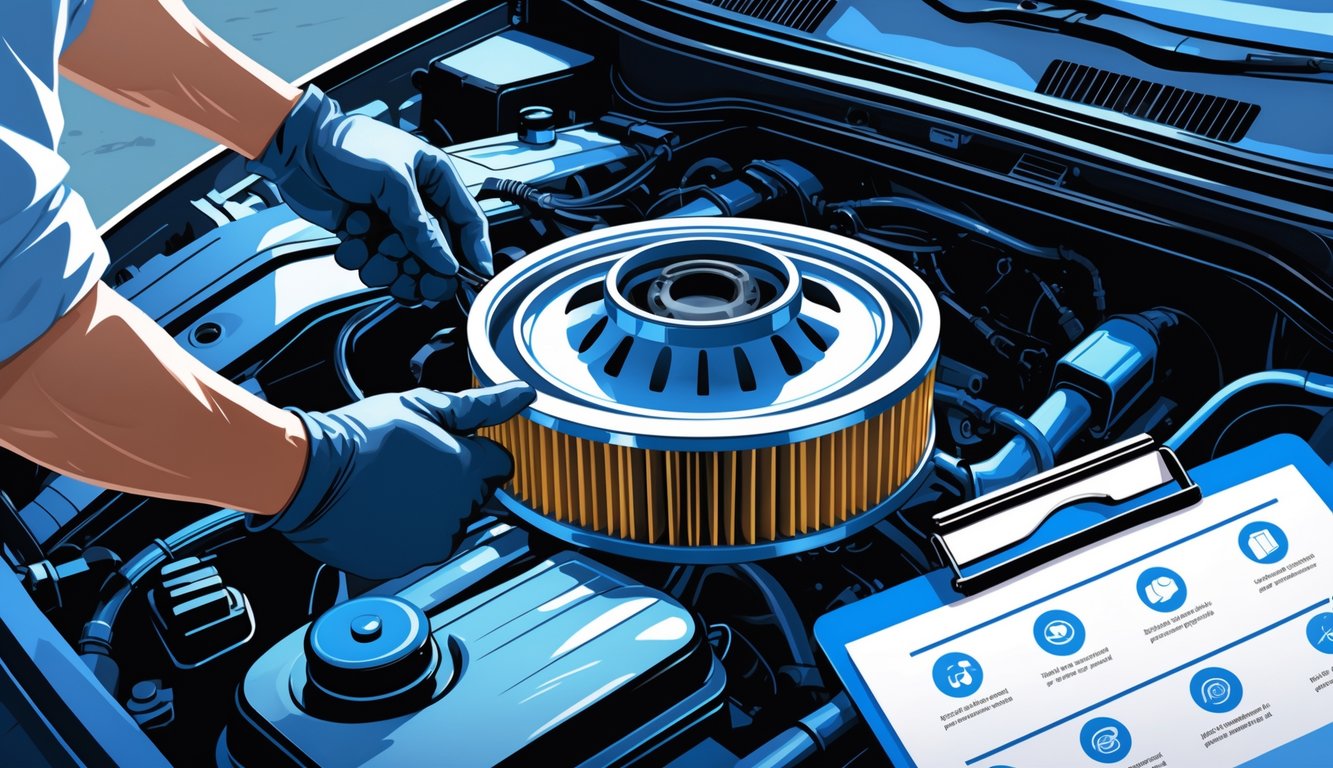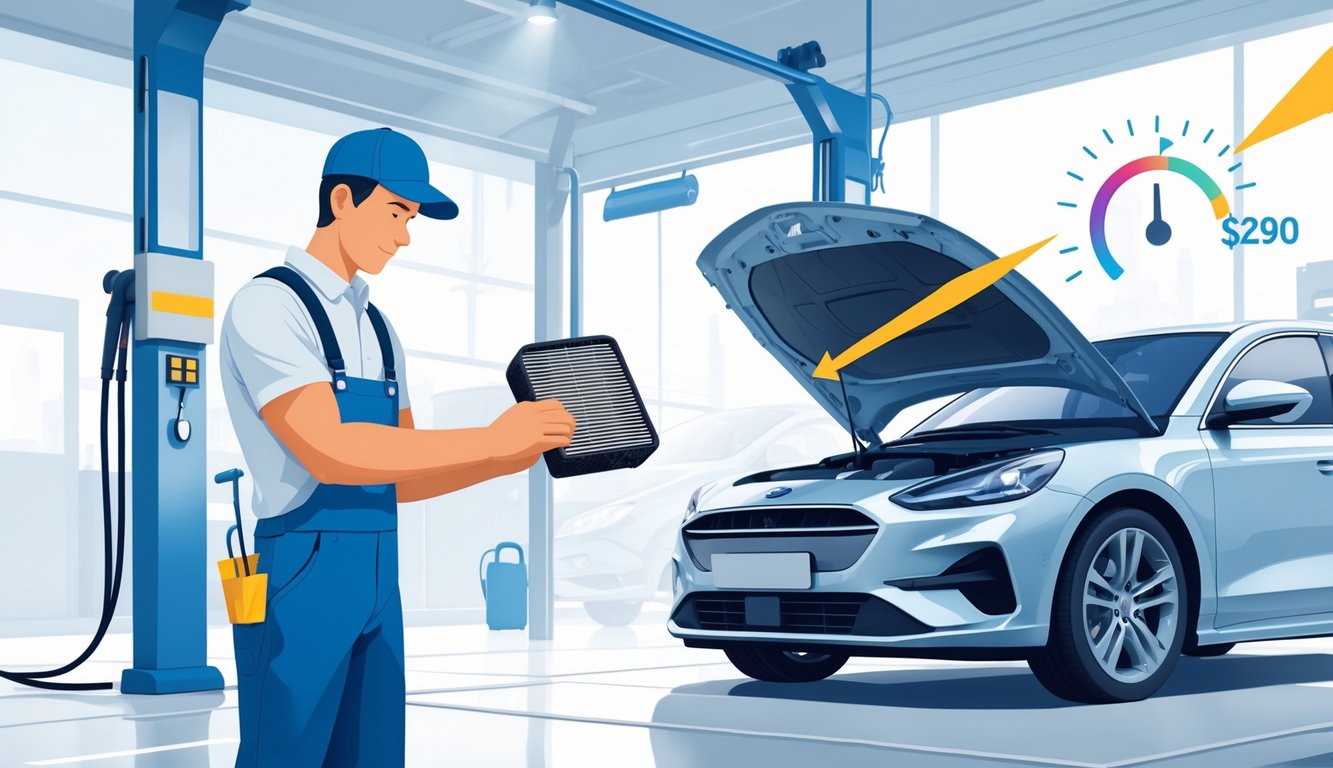
Alright, so last week I’m standing at the pump, staring at my receipt, and honestly—how did I just drop fifty bucks, again? That can’t be right, can it? But then, a few days later, I’m rooting around under the hood, poking at this sad, linty air filter, and—because I’m a glutton for online advice—I stumble across a mechanic on some forum who basically says, “Hey genius, keep ignoring your air filter and you’ll just keep bleeding cash, slow and steady.” Great. Like I needed another reason to second-guess every fill-up. The car sounds fine, nothing’s rattling, but apparently, when that filter’s clogged, the engine’s fighting for breath and my money just evaporates. Apparently every tech out there has horror stories of filters so caked with crud they look like someone tried to barbecue a loaf of bread in there.
So I’m scrolling through stats, pretending that’ll make me feel smarter, but it’s just depressing—dirty filters kill fuel economy before you even notice. Mechanics keep yelling about checking it every 12,000 to 15,000 miles, especially if you drive through dust or construction zones (which, let’s be honest, is basically every commute in this city). Car air filter maintenance breakdowns all say the same thing: ignore that boring little square and you’ll notice your wallet’s shrinking, not because of flashy dashboard warnings, but just… because. No drama, just emptier pockets. Awesome.
I’d love to say I’m on top of my maintenance game (I’m not), but who really checks their air filter between oil changes? And then there’s the whole “buy a quality filter, not the cheapest one on the shelf” debate—my mechanic just smirks and asks if I even know where the filter is. All these tiny things stack up, and meanwhile, I’m basically paying a weekly stupidity tax for not swapping out a $15 part.
Why Air Filters Matter for Drivers

Honestly, I never cared about air filters until my glovebox started filling up with gas receipts that made me question my life choices. The real gas-wasters aren’t always obvious—sometimes it’s just this sad, half-clogged filter quietly strangling my engine’s efficiency while I’m blaming gas prices or my own lead foot.
The Science of Airflow and Combustion
I’m not even kidding, I got this ad in the mail—“Change your filter, save fuel!”—and I almost chucked it. But apparently, there’s something to it. The whole deal is about getting the air-to-fuel ratio right. Clean filter? Air gets in, fuel burns better, everything works. EPA says a half-blocked filter can kill acceleration by 6–11%. That’s… not nothing.
It’s wild—tiny stuff like dust and pollen can jam up the works, but you never see it happening. One day your air filter’s packed and your mileage drops. Sure, newer engines try to compensate, but not enough. That weird lag when I hit the gas? Probably just the engine gasping for air.
Contaminants and Engine Health
Nobody ever talks about dust, but every commute I’m basically vacuuming up every gross particle on the road. Construction debris, pollen, even those tiny rocks the truck ahead just flung at my windshield—yeah, all of it. Engines aren’t built to chew through that stuff.
Last time I was at the shop, the mechanic showed me my old filter. It looked like a prop from a horror movie. They try to sell you on “high-flow” upgrades, but if you don’t change it, it’s pointless. Filter maintenance experts warn that even stuff as small as 10 microns can trash your engine over time, and it doesn’t matter if you drive a beater or something turbocharged.
Unfiltered Air and Its Effects
I ignored a weird musty smell for months—thought it was just old gym shoes. Nope. Dirty filter, system clogged, spark plugs ruined, check engine light blinking, and my MPG tanked. Engines get lazy when they’re suffocating, and emissions go up, power goes down.
Apparently, clogged filters mean more emissions and worse fuel economy. The powers-that-be say letting dirty air in just cancels out every cent I waste on premium gas and fancy oil. And every time I stomp the gas, the sensors freak out, the computer tries to fix it, and I just end up wasting more money. Fun.
How Dirty Air Filters Impact Fuel Budgets
Rush hour, AC blasting, and my fuel gauge is dropping like it’s got somewhere else to be. Why does nobody ever mention air filters? I keep paying for gas, but the basic stuff gets ignored. Miss a filter change, pay for it later.
Increased Fuel Consumption
Last time I looked at my maintenance log (which is a joke), I realized my gas costs were spiking for no clear reason. Dirty filters don’t just sit there—they choke the engine, and the car’s sensors just dump in more fuel to try to compensate. Fuelconsumptioncalculator.com says a gross filter can cost you up to 10% more gas. That’s not just internet nonsense—actual tests back it up.
So, acceleration’s sluggish, I stomp the pedal harder, and the engine just burns through more fuel. Modern cars try to adjust, but it’s not magic. In city traffic, it’s even worse—stop, start, repeat, money gone. After finally swapping my filter, my mileage bounced back almost overnight. No snake oil, just routine maintenance I’d ignored for months.
